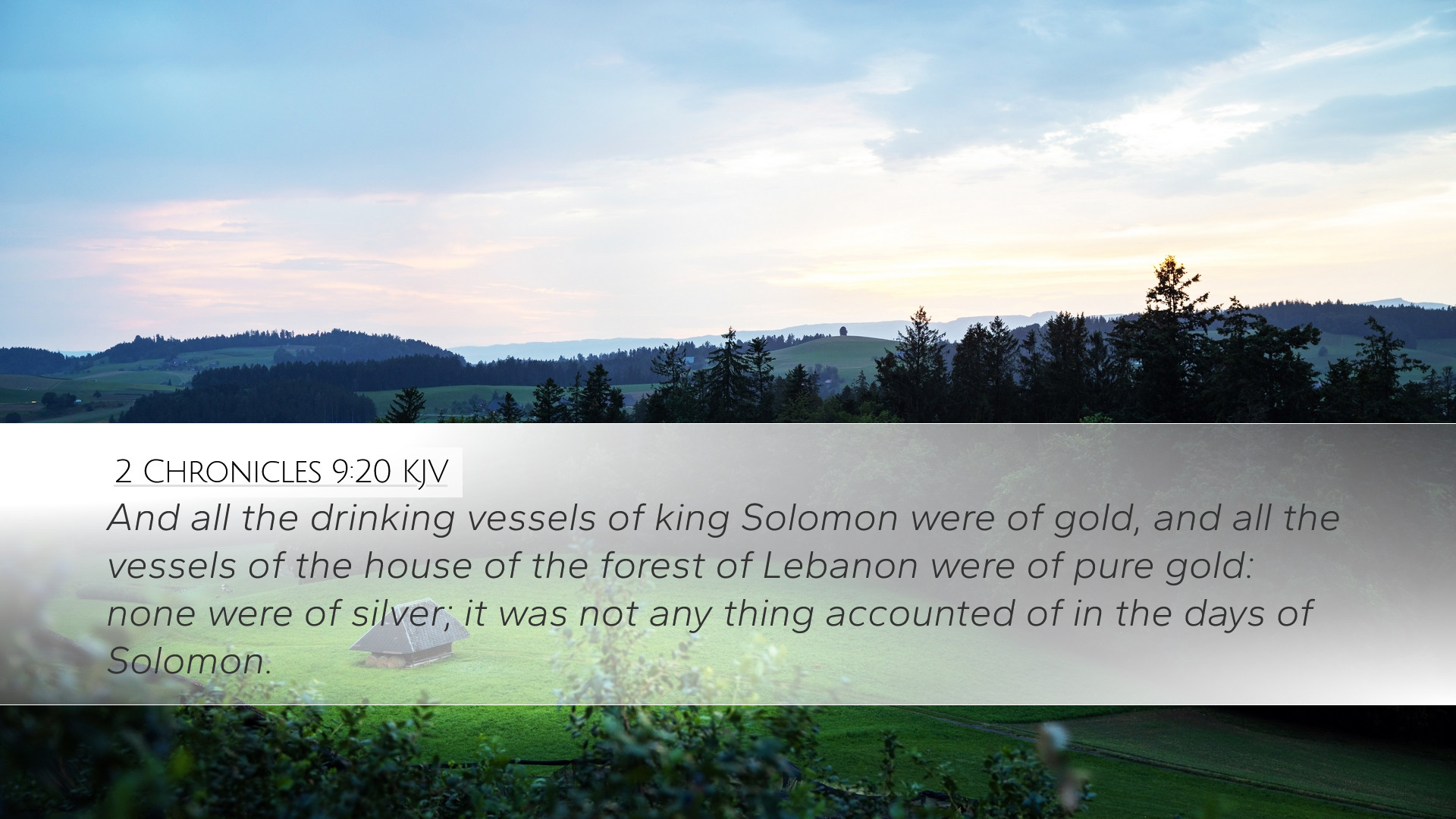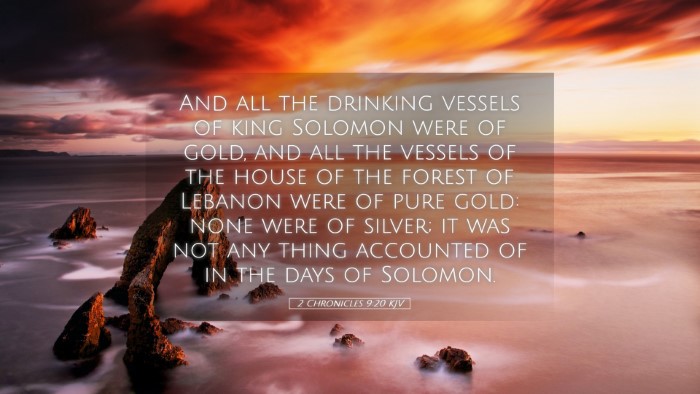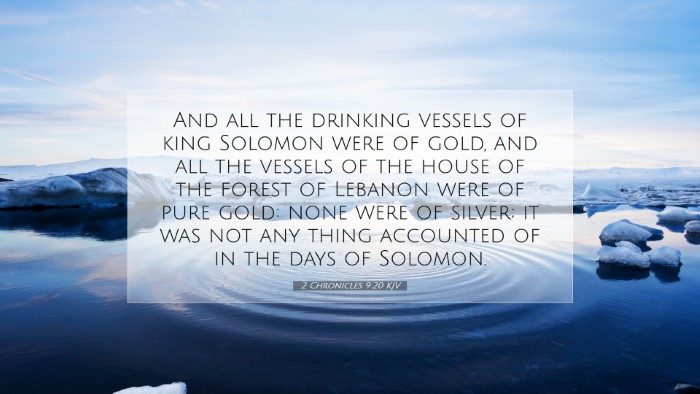Commentary on 2 Chronicles 9:20
Verse Context: 2 Chronicles 9:20 states, "And all the drinking vessels of King Solomon were of gold, and all the vessels of the house of the forest of Lebanon were of pure gold; none were of silver; it was not any thing accounted of in the days of Solomon." This passage highlights the wealth and splendor of King Solomon's reign, emphasizing the unprecedented opulence of his court.
Insights from Matthew Henry
Wealth and Splendor: Matthew Henry emphasizes that the wealth of Solomon was unmatched during his reign. The golden vessels represent not just material wealth, but the prosperity that accompanied wisdom and favor from God. Henry suggests that Solomon’s wisdom led to his wealth, illustrating that divine blessings are often manifested through responsible stewardship and the pursuit of wisdom.
Spiritual Implications: Henry brings attention to the spiritual implications of such wealth. He posits that while Solomon was magnificent in his earthly treasures, it is imperative to remember that true wealth comes from a relationship with God. He encourages readers to seek the “gold” of divine wisdom rather than the gold of earthly treasure.
Insights from Albert Barnes
The Nature of Solomon's Wealth: Albert Barnes provides an analysis of Solomon's gold vessels and notes that gold is the most precious of metals, thus symbolizing the high esteem and respect in which his rule was held. Barnes elucidates that the excessive use of gold reveals the elevation of Solomon’s status, which was recognized not only in Israel but also by surrounding nations.
Abundance over Silver: Barnes also notes that silver was considered of little value in Solomon's time. This stark contrast serves to illustrate the extraordinary nature of wealth during his reign. It raises significant questions about value and materialism, inviting believers to reflect on the importance of spiritual wealth over material abundance.
Insights from Adam Clarke
Symbol of Authority: Adam Clarke interprets the golden vessels as symbols of royal authority and governance. He mentions that the luxurious items signify not just wealth, but a chosen right to rule with majesty and power. Clarke points out that the grandeur of Solomon's court could lead to a greater understanding of God’s sovereignty at work through earthly kings.
Theological Reflections: Clarke highlights theological reflections on the abundance of gold as associated with God’s blessings upon Israel. He parallels Solomon’s wealth with the spiritual richness available to believers today, suggesting that God provides bountifully to those who act in wisdom and faithfulness.
Thematic Exploration
- Wisdom and Wealth: The passage encourages reflection on the connection between wisdom and prosperity, asserting that great wisdom leads to great wealth, which Solomon exemplifies.
- Value of the Kingdom: The mention of gold serves to elevate the status of God's kingdom on earth as one of richness and beauty, calling believers to appreciate the magnificence of God’s creation and providence.
- Spiritual versus Material Wealth: The contrast between gold and silver invites deeper contemplation about the priorities in Christian life, emphasizing the call to pursue spiritual treasures that last eternally.
Conclusion
In analyzing 2 Chronicles 9:20, we see insights from Matthew Henry, Albert Barnes, and Adam Clarke converging on the themes of divine blessing, the nature of true wealth, and the wisdom underpinning Solomon’s reign. Each commentator invites the reader not only to admire Solomon’s splendor but also to seek the abiding and eternal treasure that is found in a life aligned with God’s purpose. The passage serves as a reminder to honor God in our pursuit of wisdom and to evaluate our own lives in light of what is truly valuable.


